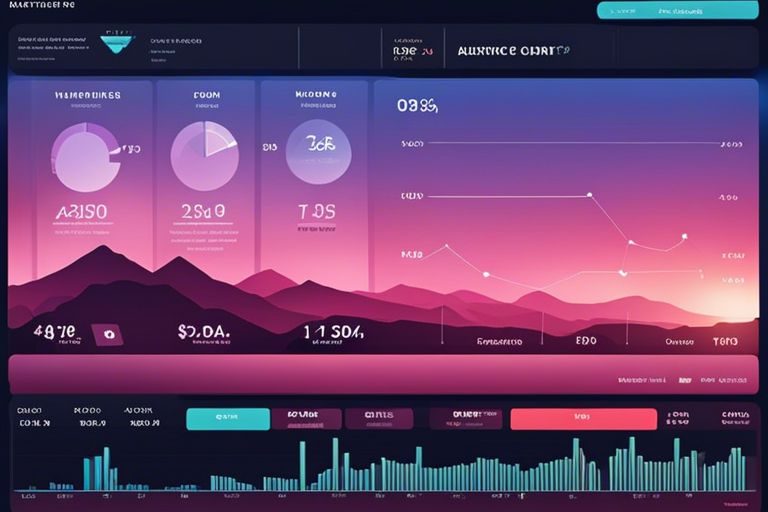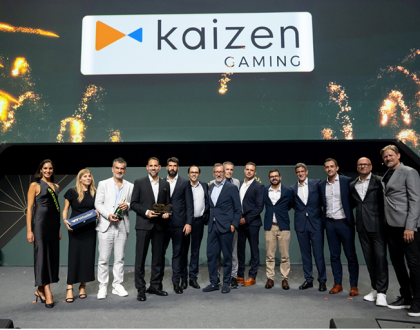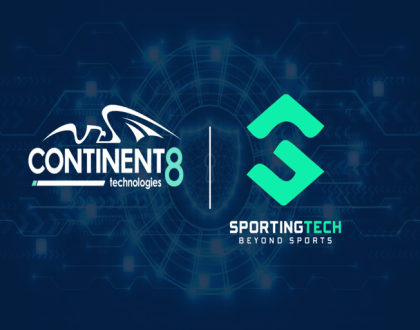iGaming Analytics and Player Behavior

Over the years, the #iGaming industry has seen unprecedented growth, attracting millions of #players worldwide. With the increasing competition in the market, understanding player behavior has become crucial for the success of any #onlinegaming platform. By utilizing iGaming analytics, operators can gain valuable insights into their players' preferences, habits, and patterns, allowing them to make informed decisions to enhance the overall #gaming experience.
By analyzing player behavior, iGaming operators can tailor their marketing strategies, game offerings, and promotions to increase player retention and engagement. Additionally, identifying problem gambling signs through analytics can help operators promote responsible gaming practices and provide assistance to players in need. Ultimately, by leveraging the power of iGaming analytics, operators can create a more personalized and enjoyable gaming experience for their players while maximizing their business potential.
Overview of iGaming Analytics
Definition and Scope
One of the key tools that drive success in the iGaming industry is analytics. iGaming analytics refers to the collection, measurement, analysis, and reporting of data related to online gambling activities. The scope of iGaming analytics extends to various aspects such as player behavior, game performance, marketing effectiveness, and overall business operations within the online gambling sector.
Components of iGaming Analytics Systems
One vital component of iGaming analytics systems is the collection of data from various sources, including player interactions, transactions, and gameplay statistics. This information is then processed using advanced analytical tools to extract insights and patterns. Analytics tools help in predicting player behavior, improving gaming experiences, targeting promotions, and enhancing overall business strategies to boost revenue and player retention.
Analytics in iGaming is crucial for identifying potential issues like problem gambling, fraud, or security breaches. It also empowers operators to make data-driven decisions that can lead to more personalized player experiences and increased profitability.
Player Behavior Analysis in iGaming
Understanding the Different Player Segments
The success of any iGaming platform relies heavily on understanding the diverse player segments that engage with the games offered. Player segmentation allows operators to tailor their offerings to the specific needs and preferences of different player groups. There are various ways to segment players, including demographics, playing habits, spending patterns, and engagement levels. By identifying and analyzing these segments, iGaming operators can devise targeted marketing strategies, personalized promotions, and enhanced gaming experiences to cater to the unique requirements of each group.
Behavioral Metrics and KPIs
The analysis of behavioral metrics and key performance indicators (KPIs) is crucial in gauging player engagement and predicting future behaviors. Through the examination of metrics such as retention rates, churn rates, session durations, wagering amounts, and game preferences, operators can gain valuable insights into player behavior patterns. These insights help in optimizing game offerings, enhancing player experiences, and maximizing revenue generation. By monitoring KPIs consistently, iGaming platforms can adapt their strategies in real-time to respond to changing player behavior and market trends, ensuring sustained success in the competitive industry.
To effectively leverage behavioral metrics and KPIs, iGaming operators must utilize advanced analytics tools and technologies. These tools can provide in-depth analysis, predictive insights, and actionable recommendations based on player behaviors. By harnessing the power of analytics, operators can make data-driven decisions that improve player engagement, increase player retention, and drive overall business growth in the dynamic iGaming landscape.
Data Collection and Management
Methods of Data Collection in iGaming
All iGaming platforms rely heavily on data collection to understand player behavior and preferences. For this purpose, various methods are used such as tracking user interactions on the website, analyzing gaming sessions, and monitoring player transactions. Data is also collected through player registrations, surveys, and feedback forms. The goal is to gather as much relevant data as possible to create personalized gaming experiences for players and improve overall platform performance.
Data Privacy and Ethics
All iGaming operators must ensure the highest standards of data privacy and ethics in their practices. Any data collected from players should be used responsibly and in compliance with regulations such as GDPR. Players must be informed about the types of data being collected, how it will be used, and have the option to opt-out if they choose. To maintain trust and credibility, it is crucial for iGaming platforms to prioritize data security and ethical data practices.
In the fast-paced world of iGaming, where vast amounts of personal data are collected daily, ensuring data privacy and ethics is not just about complying with regulations but also about protecting the players and upholding the integrity of the industry. iGaming companies that embrace transparent data practices and prioritize user privacy will not only build a loyal player base but also mitigate risks associated with data breaches and regulatory penalties.
Predictive Modeling and Player Segmentation
Techniques for Predictive Analytics
To effectively predict player behavior and optimize marketing strategies, iGaming companies leverage predictive analytics. Keep in mind that predictive modeling involves using historical data to predict future outcomes. By employing techniques such as regression analysis, machine learning algorithms, and data mining, iGaming operators can forecast player preferences, tendencies, and potential lifetime value. This allows them to tailor personalized gaming experiences and promotional offers to drive player engagement and retention.
Effective Player Segmentation Strategies
To enhance player segmentation and target specific player groups, iGaming companies implement effective strategies. Techniques like clustering, RFM (Recency, Frequency, Monetary) analysis, and behavioral segmentation help in categorizing players based on their gaming habits, preferences, and spending patterns. By segmenting players accurately, iGaming operators can create targeted marketing campaigns, loyalty programs, and customized gaming experiences for different player segments.
Another crucial aspect of effective player segmentation is the regular evaluation and adjustment of segmentation criteria based on ongoing player behavior and feedback. By continuously analyzing player data and refining segmentation strategies, iGaming operators can ensure that their marketing efforts remain relevant and impactful. Strong player segmentation not only enhances player satisfaction and engagement but also leads to increased player retention and lifetime value.
Analytics for Game Optimization
Balancing and Tweaking Game Mechanics
With the help of analytics, game developers can explore deep into player behavior data to understand how they interact with various game mechanics. This information is crucial for balancing and tweaking game mechanics to ensure optimal gameplay experience for all players. By analyzing data on factors such as player retention rates, in-game purchases, and progression speeds, developers can identify areas that need improvement and make data-driven decisions to enhance the overall gaming experience.
Personalization Through Game Analytics
Game personalization is a powerful tool that can significantly enhance player engagement and satisfaction. By leveraging game analytics, developers can create personalized experiences tailored to individual player preferences. This could involve customizing in-game challenges, rewards, or even game difficulty levels based on player behavior data. Implementing personalized features can help increase player retention, boost monetization, and foster long-term player loyalty.
The ability to create tailored experiences for each player can have a transformative impact on the success of a game. Personalization through game analytics opens up new possibilities for developers to create more engaging and immersive gaming experiences, leading to increased player satisfaction and ultimately driving the success of the game.
Player Retention and Loyalty Programs
Analyzing Factors Influencing Retention
Not all players who visit an iGaming platform become loyal customers. Understanding the factors that influence player retention is crucial for developing effective strategies. Player engagement, game variety, bonuses and promotions, and customer support are some of the key elements that can impact player retention rates. Analyzing how these factors interact with each other and affect player behavior can provide valuable insights for optimizing player retention strategies. Personalization of gaming experiences and targeted communication can also significantly impact player retention. Perceiving the unique preferences and behaviors of players is imperative for crafting personalized retention strategies.
The Role of Loyalty Programs in iGaming
On iGaming platforms, loyalty programs play a crucial role in engaging and retaining players. These programs are designed to reward players for their continued participation and loyalty. By offering reward points, exclusive bonuses, and special promotions, iGaming operators can incentivize players to stay active on their platforms. Loyalty programs not only encourage repeat visits but also help enhance the overall player experience and satisfaction. With the right loyalty program in place, iGaming operators can build strong relationships with their players and foster long-term loyalty.
The Role of Loyalty Programs in iGaming: Loyalty programs are a strategic tool used by iGaming operators to increase player engagement, retention, and lifetime value. By offering rewards and incentives, operators can incentivize players to stay active on the platform, ultimately leading to higher revenue and customer loyalty. Effective loyalty programs are tailored to meet the specific needs and preferences of players, creating a win-win situation for both players and operators.
Challenges in iGaming Analytics
Technical Challenges and Data Integrity
After investing in sophisticated data analytics tools, iGaming companies face technical challenges due to the massive volume and variety of data generated by players' online activities. Ensuring the integrity of this data is crucial for making informed business decisions. Any inaccuracies or inconsistencies in data collection, storage, or analysis can lead to flawed insights and misguided strategies. Additionally, the real-time nature of iGaming requires agile and robust systems to process data promptly and accurately.
Legal and Regulatory Considerations
After technical hurdles, iGaming analytics must navigate complex legal and regulatory landscapes. To operate legally and ethically, iGaming companies must comply with various data protection laws, such as the General Data Protection Regulation (GDPR), while also adhering to industry-specific regulations imposed by gambling authorities. For instance, failure to uphold data privacy regulations can result in hefty fines and damage to the company's reputation. Establishing a solid legal framework and implementing stringent compliance measures is imperative for sustainable iGaming operations.
Future Trends in iGaming Analytics
The Impact of Emerging Technologies
For iGaming analytics, the impact of emerging technologies is profound. Innovations such as artificial intelligence, machine learning, and big data analytics are revolutionizing the way player behavior is analyzed and understood. These technologies enable iGaming companies to capture and process vast amounts of data in real-time, allowing for personalized gaming experiences and targeted marketing strategies. Furthermore, the rise of virtual and augmented reality is poised to transform the way players interact with online games, providing a more immersive and engaging experience.
The Evolution of Player Behavior Analytics
Future trends in iGaming analytics suggest a shift towards more predictive and prescriptive analytics to anticipate player behavior and preferences. By leveraging advanced modeling techniques and algorithms, iGaming companies can forecast player actions and tailor their offerings to meet individual needs. This evolution from descriptive analytics to predictive and prescriptive analytics will empower iGaming companies to stay ahead of the competition and provide a more customized gaming experience for their players.
Technologies such as artificial intelligence and machine learning play a crucial role in enhancing player behavior analytics. These technologies can analyze vast amounts of data at lightning speed, uncovering valuable insights that were previously impossible to detect. By utilizing AI and machine learning algorithms, iGaming companies can identify patterns, trends, and anomalies in player behavior, enabling them to make data-driven decisions that ultimately lead to improved player satisfaction and loyalty.
Summing up
Now, with advanced iGaming analytics tools, understanding player behavior has become more precise and insightful than ever before. By leveraging data-driven insights, online gaming companies can tailor their offerings to individual player preferences, enhance customer experiences, and ultimately increase player retention and loyalty.
By analyzing player data such as gaming patterns, preferences, and engagement levels, iGaming operators can identify trends, make informed decisions, and optimize their marketing strategies. This deeper understanding of player behavior ultimately leads to a more sustainable and successful iGaming business in today's competitive and rapidly evolving industry.
FAQs
What is iGaming analytics?
iGaming analytics involves collecting, analyzing, and interpreting data related to online gambling activities to gain insights into player behavior and optimize business strategies.
Why is player behavior analysis important in iGaming?
Understanding player behavior helps iGaming operators tailor their offerings, enhance player engagement, and improve retention rates by delivering personalized gaming experiences.
How do iGaming analytics tools help in marketing strategies?
Analytics tools help in identifying player preferences and trends, allowing operators to create targeted marketing campaigns and promotions that resonate with their audience.
What role do predictive analytics play in iGaming?
Predictive analytics forecast player behavior, enabling operators to anticipate trends, optimize game offerings, and enhance overall customer satisfaction and loyalty.
How can iGaming companies ensure data privacy while using analytics?
iGaming companies must adhere to strict data privacy regulations like GDPR, ensuring transparent data practices and safeguarding player information.
Recommended Posts

Kaizen Gaming’s Success at SBC Awards 2024
October 4, 2024

Sportingtech Boosts Security with Continent 8
October 4, 2024

Hidden Treasures of Rome Slot by Swintt
October 4, 2024




